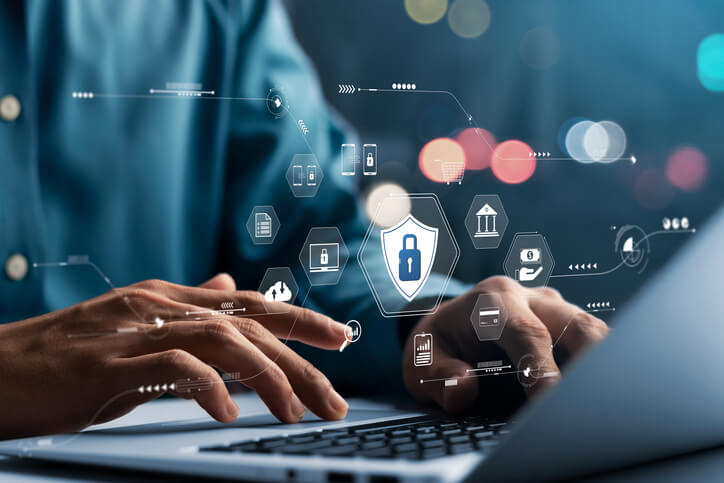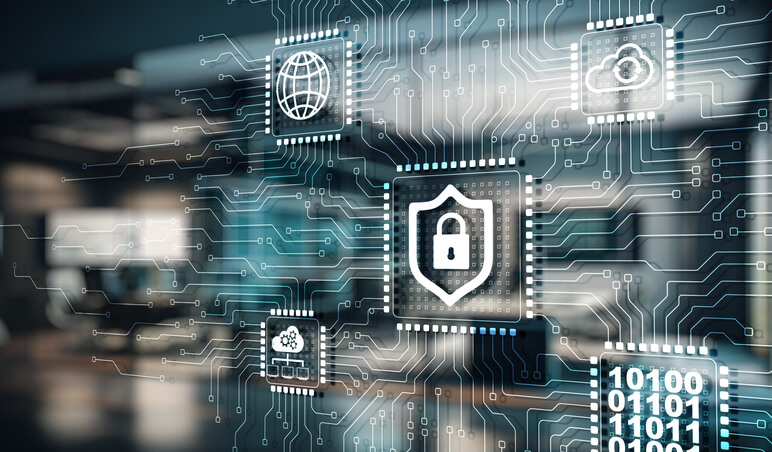It is estimated that software as a service (SaaS) applications make up approximately 70% of all software a business uses. This should not be surprising, given the many benefits of SaaS applications over traditional software programs.
As companies and organizations turn to SaaS applications to meet their growing and ever-changing needs, one constant remains — the need for these SaaS solutions to secure company data and meet other regulatory requirements. SaaS vendors who do not take this obligation can seriously risk significant legal troubles.
Considerations for Data Security
While different data types may require vendors to respond differently, SaaS vendors should use caution with all data security.
SaaS applications can collect and store a considerable amount of client data to provide a more personalized experience for the consumer. This data can include personal identifying information, such as a consumer’s name, address, and credit card information.
Some vendors may offer solutions that handle more sensitive information. Businesses that need these solutions require SaaS applications that can store and access business client records, like health or criminal justice records.
While different data types may require vendors to respond differently, SaaS vendors should use caution with all data security. Data security is an expansive term that describes how a business — including a SaaS vendor — collects, stores, and uses data it acquires from a business client.
These practices and policies may have to meet outside rules and regulations, and if so, such requirements should be part of any contract the SaaS vendor enters into with customers.

Frequently Encountered Data Privacy Laws and Regulations
Some of the laws and regulations dealing with data privacy that SaaS vendors should be prepared to address include:
The General Data Protection Regulation (GDPR)
The General Data Protection Regulation (GDPR) applies to the personal data of residents of Great Britain and the European Union. The GDPR’s terms include provisions concerning:
- What data can be collected, and how data that is collected is stored
- How much data is used by the SaaS vendor
- What standards must be met to protect data from being accessed without authorization
- Records and other information that must be kept and produced to show compliance with the GDPR
Any company that collects or uses the personal data of individuals covered by the GDPR is subject to its terms, no matter where the company is physically located.
The International Organization for Standardization (IOC) and the International Electrotechnical Commission (IEC)
The International Organization for Standardization (IOC) and the International Electrotechnical Commission (IEC) do not create laws or regulations. Instead, they promulgate standards for data security.
Companies that meet these requirements can obtain ISO certification as proof of their commitment to meeting these standards. The ISO/IEC 27001 is a globally accepted standard for data security.
Service Organization Control (SOC)
No company must comply with SOC’s policies, but doing so can be an effective part of a SaaS vendor’s overall data protection plan.
The Service Organization Control (SOC) policies were developed by the American Institute of CPAs specifically for SaaS vendors and designed to help these companies better protect sensitive data. No company must comply with SOC’s policies, but doing so can be an effective part of a SaaS vendor’s overall data protection plan.
Health Insurance Portability and Accountability Act (HIPAA)
The Health Insurance Portability and Accountability Act (HIPAA) creates requirements companies in America must meet if they store the personal health information of any patient.
HIPAA also affects how a patient’s personal health information can be disseminated to others. Companies subject to the provisions of HIPAA must comply with its provisions or risk enforcement actions.

Data Security in an Ever-Changing Landscape
SaaS vendors can stay abreast of these changing rules by consulting with an experienced law firm in Pennsylvania.
The laws, policies, and best practices concerning data protection and privacy are constantly evolving as new threats to data security are identified. SaaS vendors can stay abreast of these changing rules by consulting with an experienced law firm in Pennsylvania.
A tech law attorney from Lancaster Tech Law can determine whether you need to make any necessary data protection laws and policies a part of your contracts with clients. If you need thoughtful, accurate, and timely advice on your data privacy requirements, schedule a consultation with Lancaster Tech Law today.

